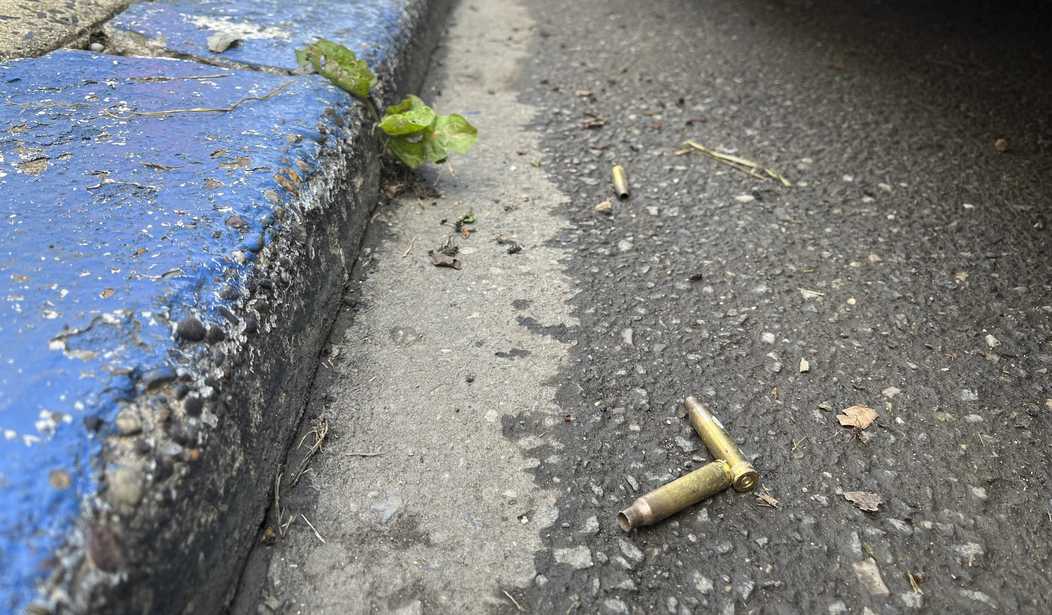Homicides in the City of Brotherly Love are down 40% compared to this point in 2023, according to the lastest statistics released by the Philadelphia police. That's a remarkable turnaround from the past few years, and it comes without any new gun control laws being put on the books in Pennsylvania.
The state's divided legislature has stymied Democrats' attempts to pass numerous anti-2A measures like raising the age to purchase any firearm from 18 to 21, banning so-called assault weapons, imposing "universal" background checks, and establishing a "red flag" law. Though anti-gunners routinely claim that the only way to improve public safety is to restrict the right to keep and bear arms, several criminal justice professors in Philadelphia say crime is dropping in the city thanks to several efforts that have nothing to do with imposing new gun control laws.
A shortage of police – driven by pandemic-era resignations, retirements and injuries – significantly affected cities like Philadelphia.Additionally, the Philadelphia Police Department’s number of traffic and pedestrian stops dropped drastically. This was due to both the need to adhere to social distancing guidelines during the COVID-19 pandemic and a widespread reluctance among officersto engage with citizens after massive protests in response to the murder of George Floyd. In fact, the number of documented stops plummeted by 83% from 2019 to 2020 alone.By September 2021, 14% of Philadelphia patrol officers were out of work on “no duty” disability leave, according to investigations by both The Philadelphia Inquirer and the city controller.
Though up-to-date data is unavailable, there was a 31% drop in injury claims by December 2022, 10 months after the Inquirer investigation was published.More recently, the Philadelphia Police Department has attempted to increase its ranks through intensified recruitment efforts. It also lowered physical requirements and eliminated certain residency restrictions.
Despite these efforts, staffing remains nearly 20% lower than in 2019. This places considerable strain on the existing workforce.Of course, the COVID-19 years considerably affected the entire criminal justice system and beyond in Philadelphia. Courts operated in a limited capacity, cases backlogged, probation and parole officers were less able to supervise individuals in the community, and the jail population was reduced. The city’s array of community- and hospital-based violence intervention programs were also disrupted.
The criminal justice professors say that "resumed court operations, improved violence intervention programs, police recruitment efforts and reduced disability claims" may help to explain why violent crime is plummeting in the city, but add that "new leadership and crime-fighting strategies" are playing a role as well.
Specifically, the academics credit new police commissioner Kevin Bethel's strategy of focusing on reducing crime in the city's hardest-hit neighborhoods, which makes sense. Crime in any given community is driven by a relatively small number of prolific offenders, so strategies that target them and the locations where they operate is more likely to both reduce crime and improve relationships between law enforcement and the communities they serve than, say, stopping and frisking tens of thousands of Philadelphia residents in the hopes of discovering someone illegally carrying a gun.
The professors note that Philadelphia isn't alone in seeing a dramatic decline in the number of homicides. Most cities across the country are seeing fewer murders this year compared to the spike in 2020 and 2021. The researchers once again credit a return to relative normalcy following the COVID pandemic, but they also offer up an intriguing theory that the increase in crime a few years ago led to the demise of some of those prolific offenders I mentioned above.
Crime trends tend to ebb and flow. This current drop appears to align with a national de-escalation in violent crime. These factors, alongside the statistical phenomenon of regression to the mean – where crime rates normalize after extreme spikes – apply to both national and local crime rates.
Some researchers, including Roman, have also considered the possibility that the recent 2020-2022 homicide peak killed a portion of the most violent offenders who drive shootings in their neighborhood. It’s based on the concept of the victim-offender overlap that those at the highest risk of violence are often offenders themselves.
The professors rightfully say that there's no single reason why homicides are down 40% in Philadelphia this year. But given that no new gun control laws have been put in place in Pennsylvania over the past few years, the city's plummeting number of homicides are more proof that it is possible to make significant gains in public safety without infringing on our right to keep and bear arms.









Join the conversation as a VIP Member